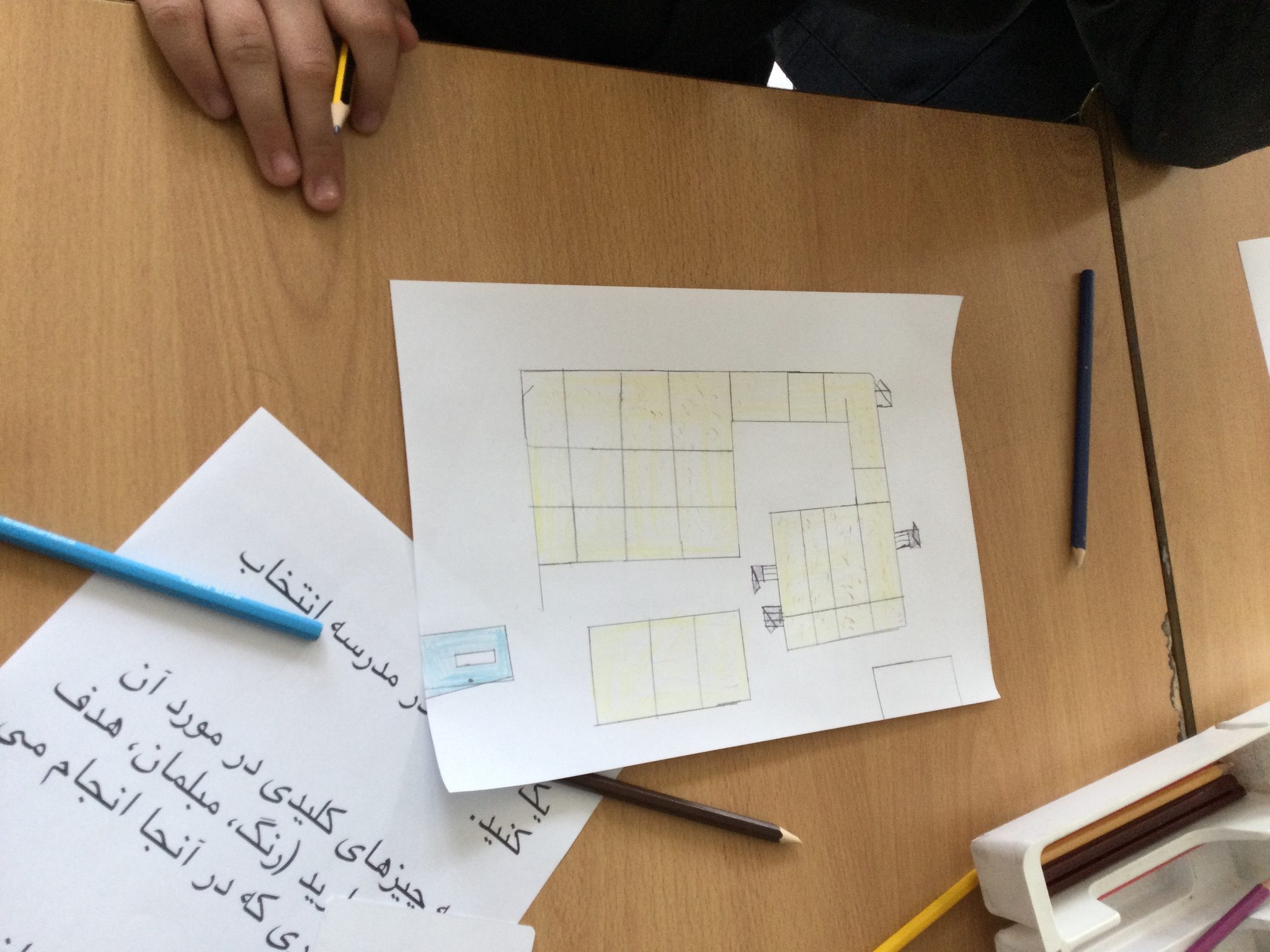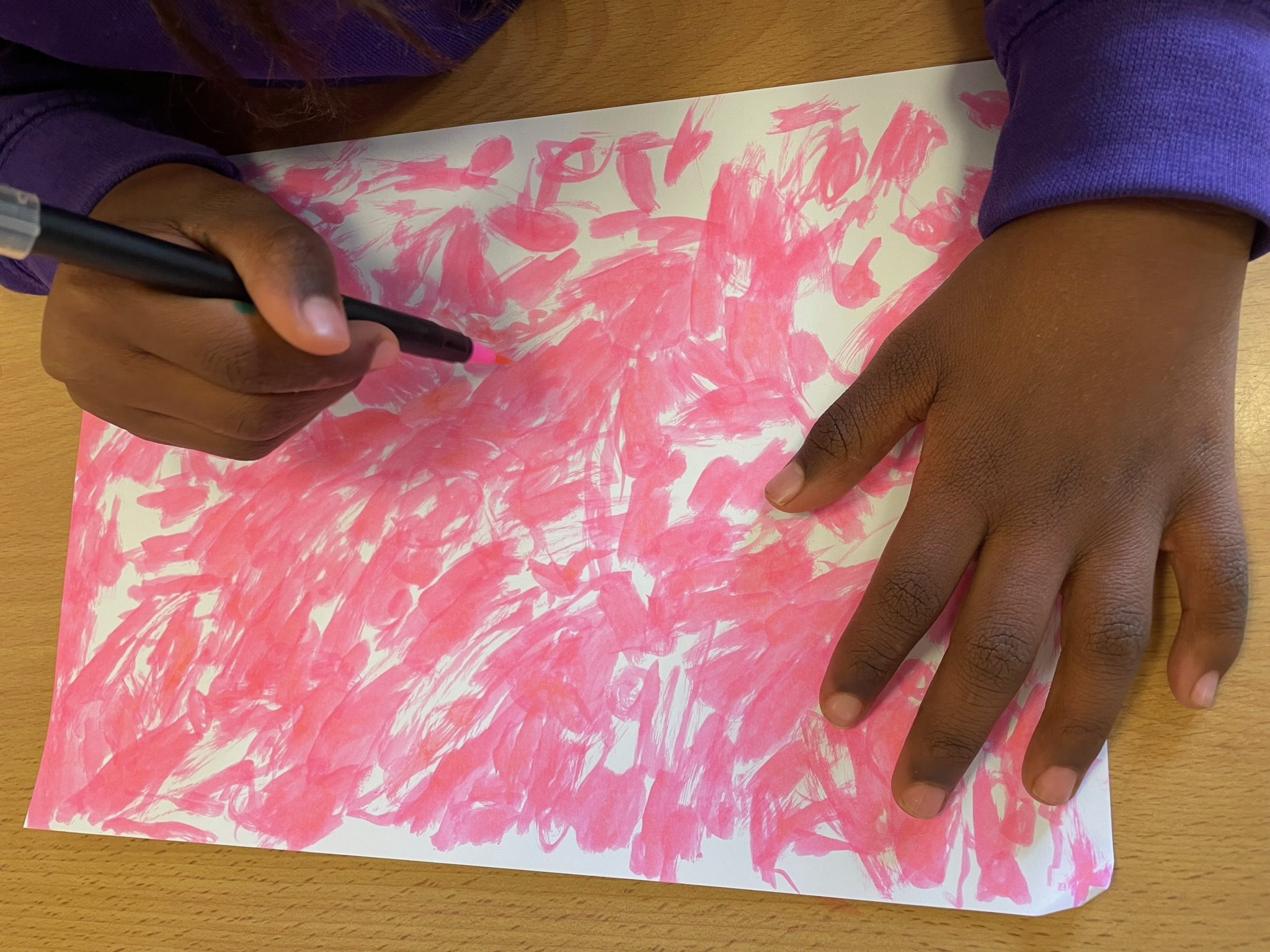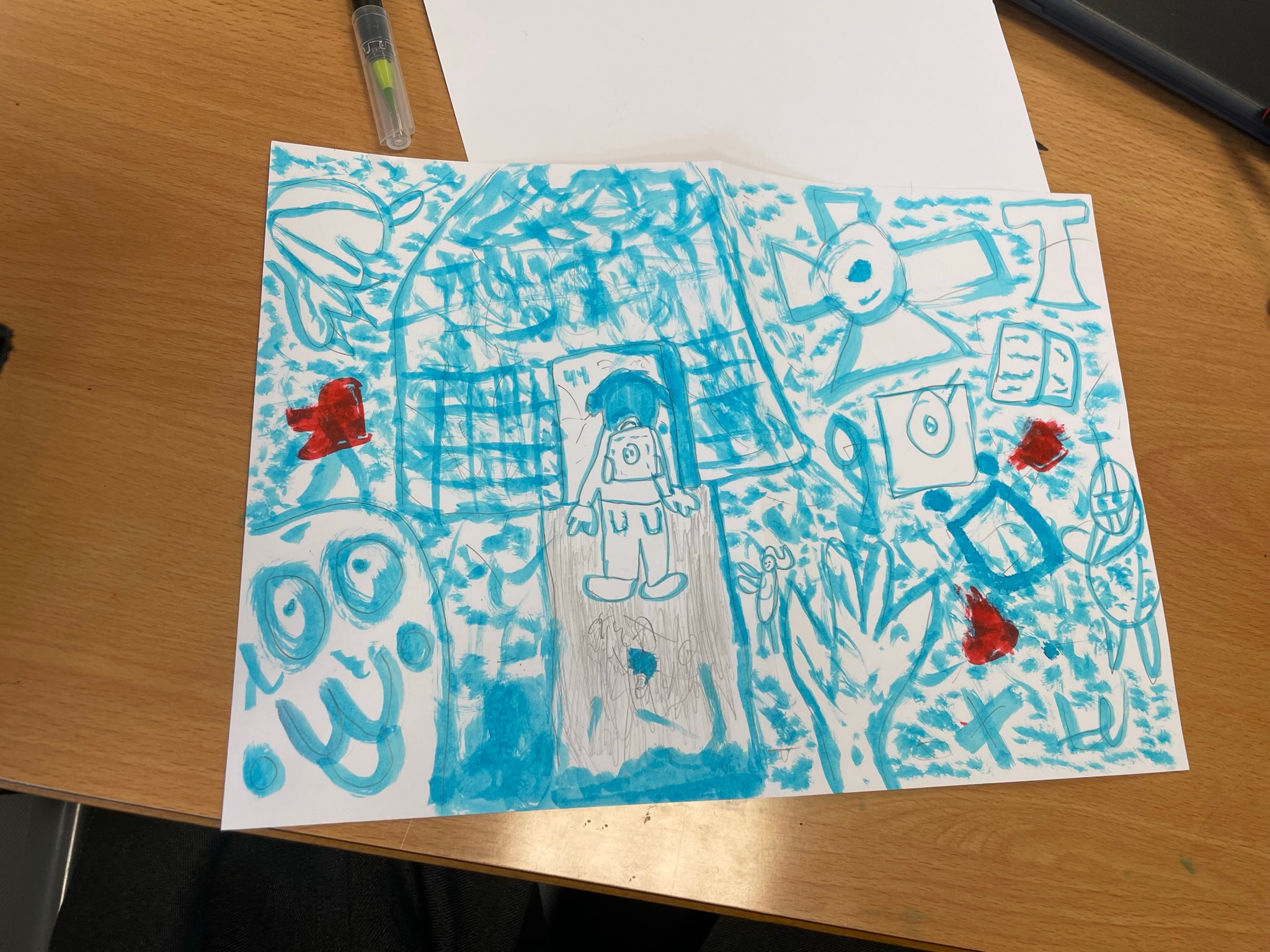Lack of legibility limits lives
Anthropology By Children creates rich, youth-led, citizen-social-science data for place-based thriving.
The ABC programme is aimed at education policymakers, decision-makers, oversight bodies and their key stakeholders; using ethnography (‘life-mapping’) to create a common, legible vocabulary on what less-listened-to young locals value, and what they need in order to be healthy and thrive.
UK public health discourses, including the climate, cost-of-living and youth mental health crises have begun to be addressed on a continuum with youth violence, fewer educational pathways, substandard or dangerous housing, linked with failings in mental and physical health, now with micro-local specificity.
Heavy reliance on quantitative data cannot offer nuanced depth of understanding how considerations like access to green spaces, lacking employment opportunities, good infrastructure, safe housing, lack of legibility in civic spaces, poor educational attainment all impact health in environmentally-situated ways. Without the context and qualitative depth, decision-makers are denuded of the ability to differentiate between spaces where indices of wealth, health, or lack there-of are held in common, but where radically different environment-specific needs and resulting key interventions are required.
What is called for is a ‘whole-systems’, locally-led approach defined (by Public Health England, 2019) as ‘responding to complexity’ through a ‘dynamic way of working’, bringing stakeholders, including communities, together to develop ‘a shared understanding of the challenge’ and integrate action to bring about sustainable, long-term systems change.” This approach addresses all key tenets of the NHS’s ten years plan for patient care by upskilling young people to support legibility of their needs, facilitating better listening and targeted actions by decision-makers.
Why does this matter?
Lack of legibility means limited youth-inclusion in decisions about them, without them. Historically, anthropology has documented children and young people better to reflect on and understand elements of adult behaviours to see social change, to document formalised care, language acquisition, or evolving expressions of class. Increasingly, however, questions of youth agency and young people’s role as activistic motivators of change in the face of climate change, a cost of living crisis, and worse health outcomes for young people than ten years ago means that children and young people’s perspectives and lived expertise has been increasingly sought out, not as an echo of adulthood, but as full young persons with potential to act and transform our futures.
Physical precarity and disease. The UK Health Security Agency (UKHSA) released a report (12/23) concluding that health impacts of climate change will be disproportionately felt by disadvantaged communities, significantly exacerbating existing health inequalities. Children of present and future generations will bear an unacceptably high disease burden from climate change. [1] This amplifies existing disparities, where those in poverty already have lower life expectancy. [2] Statistics indicate worse outcomes for young people with Special Educational Needs, Disabilities and Neurodiversities (SENDs), or who were in Care during secondary school.
Poor Mental Health and distress. The Lancet reported significant increases in climate-related distress across the globe, and UNICEF [3] estimates that one billion children are at extremely high risk as a result.” [4] This is added to what the 2020 follow-up to the landmark Marmot health inequalities report [5] already showed: disadvantaged children and young people’s health, safety, and life chances are more precarious than they were in 2010. Climate change is creating further impacts via ‘eco-anxiety’. Adults putting pressure on young people to fix climate change lead to thoughts and feelings of anxiety, stress, anger, fear of losing homes and lives, and can result in feelings of hopelessness.
Who needs this?
- Less-listened-to young people (including children and Young People, recently arrived, those with disabilities, neurodiversities or in Care) require increased legibility with decision-makers; greater presence in debates about the things that each values or needs to change/thrive;
- Policymakers/government/oversight organisations require greater depth added to model-breadth, as well as, increased civic engagement of broader swathes of the population;
- Educators struggle with resources to cover basics of curriculum, there is little to no room to engage children in broader non-curricular issues that impact children and young people directly: climate, biodiversity, consent; safety)
- Anthropology, an essential discipline which concerns what it means to be human and has the tools to amplify less-listened-to people has with the worst PR of all time with few non-specialists in broader publics knowing what the discipline does as a result of intense jargon, diminishing opportunities to study anthropology outside of elite private schools, with anthropology departments being shut-down daily.
Why ABC?
Dr Kelly Robinson has reviewed the existing discourses and data sets; while quantitative data yields important insights about macro-structural trends, shifts and movements, it cannot provide the specificity yielded by long-term ethnographic study of lived experiences in micro-local contexts. ABC provides a novel, locally-anchored/nationally scalable, inclusive youth-led citizen social science research methodology which provides rich, place-based data on lived-experiences of children in areas with ONS-identified indices of multiple deprivations (IMDs) in England, adding multimodal ethnographic depth to the breadth of existing statistical models.

Overview: co-produced work leading to novel intervention
Developed and trialled with children (aged 11-16 years), educators and policymakers with support from Islington Council (2021-2024), the ABC programme is particularly innovative because it is both self-advocacy curriculum and citizen-social-science methodology, which encourages creative ‘multimodal’ approaches (meaning: mixed methods for communication access) to help children tell their stories about their lives, the things they love, hope for, and want to change. This uniquely facilitates textured, evidence-based understanding of existing statistical data on child health inequalities, how lived-experiences of deprivation vary in different parts of the country, and how these particular experiences impact on their health and future thriving.
It is widely agreed that place-based precarities must be understood in context with the views of specific populations who are experiencing challenges on the ground. Dr Kelly Robinson and the ABC team will train local residents including young people, to collect rich, place-based data on lived-experiences of young people’s health in areas with ONS-identified indices of multiple deprivations (IMDs) in England, adding multimodal ethnographic depth to the breadth of existing statistical models. Through work in schools during term, and by leading and training next-gen in-situ local youth leaders to support holiday clubs for children and young people and adults outside of term-time, ABC proposes co-constructed location–based consultation lasting indefinitely beyond the end of the project, which is locally driven and nationally scalable.
The programme contributes:
- Novel contribution: traditional participant observation both in schools and local neighbourhood hubs will be supplemented by holiday clubs which will train young people and their local adult networks (including borough council, educators, families, and adult-decision-makers) in ethnographic methods during the school holidays.
- Innovative Design: ABC’s team will run up to 12 weeks p/a of ‘ABC holiday day-clubs to learn the ABC methods, with lunch/snacks provided when free-school meals aren’t available, addressing challenges as they document them
- Intergenerational impact: 12 weeks of evening ‘ABC holiday shadow clubs’ to upskill adult family-members/other local residents
- Iterative participation, exceeding the life of the project: PL/PDRAs will recruit in-school participants in Cambridgeshire, East Anglia, Gloucestershire, and Greater London through existing networks, local partners, a growing community of practice which features members of the public sector (health, police, education, policy-making), local arts and community hubs in each region, as well as snowball sampling, and digital research of local groups
- Opensource outputs: resulting data will inform comparative ethnographic field-studies across: London/Cambridge (Urban), East Anglia (Rural in-land/rural-Coastal), Gloucestershire w/Gloucestershire Creative Arts Consortium (Rural), creating a template for addressing young people’s environment-specific health and support needs, improving their life-chances and future prosperity
Benefits
- TRAINING: children and young people, local support networks, and policymakers are all upskilled in multimodal methods highlighting environmentally-specific challenges;
- RESEARCH: participant-produced deep qualitative data contextualising what ‘health’ means in urban (London), coastal (East Anglia), and rural (Gloucestershire/Cambridgeshire), areas with commonly-held ONS deprivation statistics will be made available in forms which are easily digestible by publics but also highlighting distinct environment-specific needs;
- ENGAGEMENT: shown to enhance capacity and appetite, making local public health challenges legible to decision-makers in actionable ways
Outcome
Youth-led citizen social science will document, inform, and transform localised youth health and support through development of self-advocacy skills and engaged local citizen action.

Founder
Dr Kelly Fagan Robinson, Assistant Professor of Medical Anthropology, Department of Social Anthropology, University of Cambridge
Kelly Robinson’s research focuses on disabilities, communication, inequalities, social access, and public policy. Her work foregrounds the ways that individual histories, bodies, sensorial hierarchies, education, and experiences of formalised care can generate epistemic dissonances and injustices for people.
She lectures on ‘non-normal’ ways of being in the world, techniques of multimodal attention, and analysis as ways of thinking through the complex constitution of communication differences and related exclusions and injustices. Her Leverhulme ECR Fellowship project, Communication Faultlines on the Frontlines (2021-2024), charted and analysed the ways that individual experiences, bodies, and moral judgments contribute to specific definitions of value and social action. She continues to work with young people and their extended social and educational networks to facilitate the citizen-science, multimodal approach of ABC. Learn more
References
- Ethnicity and UK climate perceptions: Why we need greater diversity in engagement and research – The Centre for Climate Change and Social Transformations (CAST) report
- Health Effects of Climate Change (HECC) in the UK – UK Health Security Agency (UKHSA) report
- One billion children at ‘extremely high risk’ of the impacts of the climate crisis – Unicef
- Climate anxiety in children and young people and their beliefs about government responses to climate change: a global survey – The Lancet
- The impact of the cost of living crisis on young people – UK Parliament




